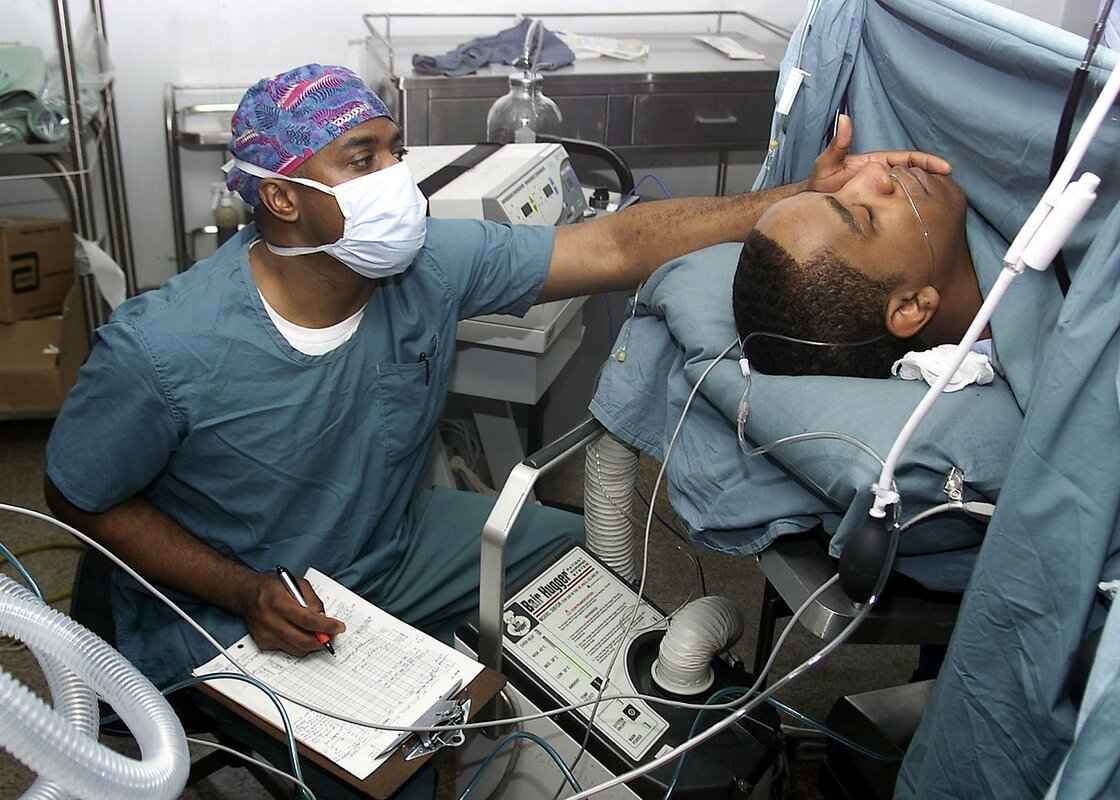This article explores the risks associated with postponing knee replacement surgery, including potential complications, impact on quality of life, and expert recommendations for timely intervention.
What Are the Risks of Delaying Knee Replacement Surgery?
Understanding the medical and functional risks associated with postponing knee surgery is crucial for patients. Delays can lead to worsening joint conditions and increased pain levels. The longer one waits, the more difficult recovery can become, often leading to a need for more extensive surgical procedures.
How Does Arthritis Progress Without Surgery?
Arthritis can lead to significant joint deterioration over time. Without timely intervention, patients may experience rapid progression of their condition, affecting mobility and overall health. Ignoring symptoms not only exacerbates the physical state but can also lead to emotional distress as daily activities become increasingly challenging.
What Types of Arthritis Affect Knee Health?
- Osteoarthritis: The most common culprit, this degenerative joint disease worsens with age and can lead to severe pain and stiffness.
- Rheumatoid Arthritis: An autoimmune disorder that can result in joint deformities, requiring prompt surgical intervention to manage symptoms effectively.
How Does Delaying Surgery Affect Quality of Life?
Patients delaying knee replacement often face decreased mobility and increased pain, which can significantly diminish their quality of life and independence. When daily tasks become burdensome, the emotional toll can lead to feelings of frustration and isolation.
What Are the Long-term Consequences of Postponing Surgery?
Long-term consequences can include chronic pain, joint deformity, and dependency on pain medications. Understanding these risks can motivate patients to consider timely surgery. Furthermore, delaying treatment increases the likelihood of developing other health issues due to inactivity.
Increased Risk of Falls and Injuries
Delaying knee replacement can lead to instability and a higher risk of falls. This can result in additional injuries and complications, particularly in older adults. A fall can cause fractures or other serious injuries, necessitating further medical intervention.
Potential for Chronic Pain Development
Chronic pain can develop when knee conditions are left untreated. This persistent pain can affect mental health and overall well-being, leading to anxiety and depression.
What Are the Signs That Surgery Shouldn’t Be Delayed?
- Severe Pain and Limited Mobility: When pain becomes unbearable and mobility is severely restricted, it may be time to consider knee replacement surgery as a viable option.
- Impact on Daily Activities: If knee pain interferes with daily activities, such as walking or climbing stairs, it is crucial to consult a healthcare provider about the need for surgery.
How Can Patients Prepare for Knee Replacement Surgery?
Preparation is key to a successful surgery and recovery. Patients should understand pre-operative requirements and post-operative care for optimal outcomes. Engaging with orthopedic specialists can provide tailored advice regarding their specific knee condition and surgical options.
Physical Therapy and Strength Training: Pre-surgery physical therapy can enhance recovery outcomes. Strengthening the muscles around the knee can lead to better post-operative results, improving overall mobility and functionality.
What Can Be Expected After Knee Replacement Surgery?
Post-operative expectations include recovery timelines, rehabilitation, and potential complications. Understanding these factors can help patients prepare mentally and physically for their journey ahead. A structured rehabilitation program is essential for regaining strength and mobility.
In conclusion, the dangers of delaying knee replacement surgery are profound. It is essential for patients to recognize the urgency of their condition and the potential long-term effects of inaction. Consulting with healthcare professionals and engaging in preparatory measures can significantly enhance outcomes and improve quality of life.

What Are the Risks of Delaying Knee Replacement Surgery?
Understanding the risks associated with delaying knee replacement surgery is essential for patients seeking relief from chronic pain and mobility issues. When surgery is postponed, the consequences can be severe, impacting not only physical health but also overall quality of life.
Postponing knee replacement surgery can lead to a myriad of complications. As conditions worsen, patients may experience increased pain, reduced mobility, and a decline in their overall health. The longer the wait, the more significant the risks become, including:
- Joint Deterioration: Over time, the cartilage in the knee continues to degrade, leading to further joint damage.
- Increased Pain Levels: Chronic pain can become debilitating, affecting daily activities and mental well-being.
- Loss of Mobility: Patients may find it increasingly difficult to perform simple tasks, such as walking or climbing stairs.
- Higher Risk of Falls: Instability in the knee joint can lead to falls, particularly in older adults, resulting in serious injuries.
Arthritis, particularly osteoarthritis and rheumatoid arthritis, can significantly worsen without timely surgical intervention. As the disease progresses, patients may face:
- Joint Stiffness: Increased stiffness can make movement painful and difficult.
- Inflammation: Chronic inflammation can lead to further joint damage and systemic health issues.
- Deformities: Long-term untreated arthritis can result in joint deformities, requiring more complex surgical solutions.
Patients who delay knee replacement often experience a drastic decline in their quality of life. The pain and mobility issues can lead to:
- Emotional Distress: Chronic pain can contribute to anxiety and depression.
- Social Isolation: Limited mobility may prevent patients from engaging in social activities.
- Dependence on Pain Medications: Increased reliance on medications can lead to additional health problems.
Long-term consequences of delaying knee surgery can be severe. Patients may face:
- Chronic Pain Development: Untreated knee conditions often lead to persistent pain that impacts daily life.
- Joint Deformity: Over time, untreated arthritis can lead to permanent changes in joint structure.
- Increased Healthcare Costs: Ongoing treatment for complications can lead to higher medical expenses.
Identifying the right time for knee replacement surgery is crucial. Key signs include:
- Severe Pain: If pain becomes unbearable and interferes with daily activities, it may be time to consider surgery.
- Limited Mobility: Difficulty performing tasks like walking or climbing stairs is a strong indicator of the need for surgical intervention.
- Impact on Quality of Life: If knee pain affects emotional well-being and social interactions, it’s essential to consult a healthcare provider.
Proper preparation can significantly enhance the outcomes of knee replacement surgery. Patients should consider:
- Consulting Healthcare Professionals: Engaging with orthopedic specialists can provide tailored advice.
- Physical Therapy: Pre-surgery physical therapy can strengthen muscles around the knee, improving recovery.
- Understanding Post-operative Care: Knowing what to expect after surgery can ease anxiety and promote a smoother recovery process.

How Does Arthritis Progress Without Surgery?
Arthritis is a debilitating condition that affects millions of individuals worldwide, often leading to significant joint deterioration over time. When left untreated, the condition can progress rapidly, resulting in profound consequences for mobility and overall health. Understanding how arthritis advances without surgical intervention is critical for patients seeking to manage their symptoms effectively.
As arthritis progresses, the cartilage that cushions the joints wears down, leading to increased friction between bones. This deterioration can result in:
- Increased Pain: Patients may experience chronic pain that becomes more severe with movement.
- Swelling and Inflammation: The joints may become swollen, leading to discomfort and reduced range of motion.
- Joint Deformities: Over time, the structural integrity of the joint can be compromised, leading to deformities that affect alignment and function.
Without timely intervention, patients often face a decline in mobility. This can manifest in various ways:
- Difficulty Performing Daily Activities: Simple tasks like walking, climbing stairs, or even standing up can become increasingly challenging.
- Increased Dependence: Many individuals may find themselves relying on others for assistance, which can lead to feelings of frustration and loss of independence.
- Risk of Falls: Diminished mobility increases the risk of falls, which can lead to serious injuries, particularly in older adults.
The long-term consequences of postponing treatment for arthritis can be severe. Patients may develop:
- Chronic Pain: Persistent pain can become a way of life, affecting mental health and overall well-being.
- Joint Damage: Continuing to use a damaged joint can lead to irreversible changes and the need for more invasive treatments later on.
- Systemic Health Issues: Arthritis can also contribute to other health problems, such as cardiovascular diseases, due to the systemic inflammation it causes.
Early intervention is crucial for managing arthritis effectively. Studies have shown that patients who seek treatment sooner rather than later often experience:
- Better Outcomes: Timely surgical intervention can significantly improve joint function and reduce pain.
- Improved Quality of Life: Patients who address their arthritis early can maintain a higher level of activity and independence.
- Lower Healthcare Costs: Addressing the issue early can result in fewer complications and reduced need for extensive treatments down the line.
Recognizing the signs that indicate the need for surgical intervention is vital. Key indicators include:
- Severe and Persistent Pain: If pain persists despite conservative treatments, it may be time to consider surgery.
- Limited Range of Motion: Difficulty in moving the joint can signal that the condition is worsening.
- Impact on Daily Life: If arthritis interferes with daily activities, it is essential to consult a healthcare provider.
In conclusion, understanding the progression of arthritis without surgical intervention is essential for patients. The potential risks and long-term consequences underscore the importance of seeking timely treatment to maintain mobility, independence, and overall health.
What Types of Arthritis Affect Knee Health?
Arthritis is a complex condition that can take various forms, each affecting the knees differently. Understanding the specific type of arthritis is crucial for determining the appropriate treatment and the urgency of surgical intervention. This article delves into the most prevalent types of arthritis that impact knee health, namely osteoarthritis and rheumatoid arthritis, among others.
Osteoarthritis is a degenerative joint disease that primarily occurs due to wear and tear on the joints over time. It is the most common form of arthritis affecting the knees, especially in older adults. Symptoms often include:
- Joint pain during or after movement
- Stiffness after sitting or resting
- Swelling around the joint
- Reduced flexibility and range of motion
As osteoarthritis progresses, the cartilage cushioning the knee joint deteriorates, leading to increased pain and decreased mobility. Early recognition and intervention can significantly improve outcomes, making it essential to consult healthcare providers when symptoms arise.
Rheumatoid arthritis (RA) is an autoimmune disorder that not only affects the joints but can also impact other body systems. It is characterized by chronic inflammation, which can lead to joint deformities and severe pain. Key features of RA include:
- Symmetrical joint pain affecting both knees
- Morning stiffness lasting for more than 30 minutes
- Fatigue and general malaise
- Swelling and tenderness in affected joints
Effective management of RA often requires a multidisciplinary approach, including medication, physical therapy, and sometimes surgery to relieve symptoms and improve quality of life.
In addition to osteoarthritis and rheumatoid arthritis, several other types can impact knee health:
- Gout: A form of arthritis caused by the accumulation of uric acid crystals in the joints, leading to sudden and severe pain.
- Pseudogout: Similar to gout, but caused by calcium pyrophosphate crystals, affecting the knee with sudden swelling and pain.
- Psoriatic Arthritis: Associated with psoriasis, this type can cause inflammation in the knees along with skin symptoms.
Recognizing the type of arthritis affecting the knees is vital for understanding the urgency of treatment options, including surgery. Delaying treatment can lead to irreversible damage, increased pain, and a decline in overall mobility. Patients are encouraged to seek timely medical advice to explore surgical options, especially when conservative treatments fail to provide relief.
In conclusion, being informed about the various types of arthritis that affect knee health is essential for making educated decisions regarding treatment and management. Whether it’s osteoarthritis, rheumatoid arthritis, or another form, early intervention can significantly enhance quality of life and functional outcomes.
Osteoarthritis: The Most Common Culprit
Osteoarthritis is a prevalent degenerative joint disease that primarily affects the cartilage, the protective tissue at the ends of bones. As individuals age, the risk of developing osteoarthritis increases significantly. This condition is characterized by the gradual wear and tear of cartilage, leading to pain, stiffness, and reduced mobility in the affected joints, particularly the knees.
Recognizing the symptoms of osteoarthritis early is vital for managing the condition effectively. Common symptoms include:
- Joint Pain: Persistent pain during or after movement.
- Stiffness: Especially noticeable in the morning or after sitting for long periods.
- Swelling: Inflammation around the joints due to excess fluid.
- Reduced Range of Motion: Difficulty in performing daily activities such as walking or climbing stairs.
- Creaking or Grating Sensation: A feeling of grinding when moving the joint.
Early detection and intervention can significantly alter the course of osteoarthritis. When symptoms are identified promptly, patients can explore various treatment options that may include physical therapy, medications, and in some cases, surgical intervention. Delaying treatment can lead to more severe joint damage and limit the effectiveness of future treatments.
Without timely intervention, osteoarthritis can lead to progressive joint deterioration. As the cartilage continues to wear away, bones may begin to rub against each other, causing increased pain and inflammation. This progression can result in:
- Joint Deformities: Altered joint structure that can further complicate treatment.
- Loss of Function: Reduced ability to perform everyday tasks, impacting overall quality of life.
- Increased Pain Levels: Chronic pain that may require stronger medications or surgical options.
There are two main types of osteoarthritis:
- Primary Osteoarthritis: Typically age-related and develops gradually over time.
- Secondary Osteoarthritis: Results from an injury or other medical conditions, such as obesity or joint overuse.
Several factors can increase the risk of developing osteoarthritis, including:
- Age: The likelihood of developing osteoarthritis increases with age.
- Weight: Excess body weight puts additional stress on weight-bearing joints.
- Genetics: Family history of osteoarthritis can increase susceptibility.
- Previous Injuries: Past joint injuries can lead to increased risk.
Managing osteoarthritis involves a comprehensive approach that may include:
- Physical Therapy: Customized exercises to strengthen muscles around the joint.
- Medications: Nonsteroidal anti-inflammatory drugs (NSAIDs) to reduce pain and inflammation.
- Weight Management: Maintaining a healthy weight to reduce stress on joints.
- Surgery: In severe cases, joint replacement may be necessary to restore function.
In conclusion, recognizing the symptoms of osteoarthritis early is crucial for effective management and intervention. Patients should consult healthcare professionals to discuss treatment options and strategies to maintain joint health and function.
Rheumatoid Arthritis: A Systemic Condition
Rheumatoid arthritis is a chronic autoimmune disorder that can have a profound impact on a person’s life. Unlike osteoarthritis, which is primarily a degenerative joint disease, rheumatoid arthritis is characterized by the body’s immune system mistakenly attacking its own joint tissues. This can lead to significant joint deformities and a decline in overall functionality.
Patients with rheumatoid arthritis often experience a range of symptoms that can vary in intensity. Common symptoms include:
- Joint pain: Persistent pain in the joints, particularly in the hands, wrists, and knees.
- Stiffness: Morning stiffness that lasts for more than an hour is a hallmark of this condition.
- Swelling: Inflamed joints that may feel warm to the touch.
- Fatigue: Chronic tiredness that can interfere with daily activities.
Without appropriate treatment, rheumatoid arthritis can lead to severe joint damage. The inflammation caused by the immune response can erode cartilage and bone, resulting in:
- Loss of mobility: Difficulty in performing everyday tasks such as walking or climbing stairs.
- Joint deformities: Misalignment of joints, which can lead to further complications.
- Systemic effects: Rheumatoid arthritis can also affect other organs, including the heart and lungs.
Early intervention is crucial in managing rheumatoid arthritis effectively. Treatment options may include:
- Medications: Disease-modifying antirheumatic drugs (DMARDs) can slow disease progression.
- Physical therapy: Helps maintain joint function and mobility.
- Surgery: In severe cases, surgical options such as joint replacement may be necessary to restore function and alleviate pain.
Failing to seek timely treatment can lead to numerous long-term consequences, including:
- Chronic pain: Persistent pain can affect mental health, leading to conditions such as depression and anxiety.
- Increased dependency: Patients may require assistance with daily activities, impacting their quality of life.
- Higher healthcare costs: Ongoing pain management and treatment can become financially burdensome.
In addition to medical treatment, lifestyle modifications can play a significant role in managing rheumatoid arthritis:
- Regular exercise: Low-impact activities like swimming or cycling can help maintain joint function.
- Healthy diet: A balanced diet rich in anti-inflammatory foods can support overall health.
- Stress management: Techniques such as yoga or meditation can help reduce stress and improve emotional well-being.
Patients diagnosed with rheumatoid arthritis should actively engage with their healthcare providers. This can include:
- Regular check-ups: Monitoring disease progression and adjusting treatment plans as needed.
- Open communication: Discussing any changes in symptoms or side effects from medications.
- Seeking support: Joining support groups can provide emotional assistance and practical advice from others facing similar challenges.
In conclusion, rheumatoid arthritis is a systemic condition that requires a proactive approach to management. Early diagnosis and treatment, combined with lifestyle changes and patient advocacy, can significantly improve quality of life and reduce the risk of severe complications.
How Does Delaying Surgery Affect Quality of Life?
Delaying knee replacement surgery can have profound implications for a patient’s quality of life. As individuals postpone this critical intervention, they often find themselves grappling with an array of challenges that can hinder their daily activities and overall well-being.
When patients choose to delay knee replacement, they frequently encounter increased pain and diminished mobility. This can lead to a cycle of inactivity, where reduced movement exacerbates joint stiffness and discomfort. As the condition worsens, simple tasks such as walking, climbing stairs, or even standing for extended periods become daunting challenges.
The emotional toll of living with chronic pain cannot be understated. Many patients report feelings of frustration, anxiety, and even depression as their mobility declines. The inability to engage in social activities or hobbies they once enjoyed can lead to a sense of isolation. This emotional burden is often compounded by the physical limitations they experience.
Another significant concern is the increased risk of falls. Patients who delay surgery may develop a compensatory gait to avoid pain, which can lead to instability. This instability not only raises the risk of falls but can also result in serious injuries, particularly in older adults. The consequences of such injuries can be severe, often leading to further complications and a longer recovery period.
As pain levels rise, many patients become reliant on pain management strategies, including medications. While these can provide temporary relief, they often come with side effects and do not address the underlying issue. Over time, this dependency can lead to complications such as tolerance, where higher doses are needed to achieve the same level of relief, further complicating a patient’s health profile.
Delaying surgery can also lead to a decline in overall physical health. The lack of mobility can result in weight gain, muscle atrophy, and cardiovascular issues due to decreased activity levels. This decline can create a vicious cycle, where poor physical health further diminishes mobility and increases pain, making surgery even more critical.
Patients should be vigilant for signs that indicate the necessity for timely intervention. Severe pain that disrupts sleep or daily activities, along with noticeable changes in mobility, are critical indicators that it may be time to consult a healthcare provider. Recognizing these signs early can help prevent further deterioration of joint health.
Once the decision is made to proceed with knee replacement, preparation becomes vital. Engaging with healthcare professionals to understand the surgical process, recovery expectations, and post-operative care is crucial. Additionally, pre-operative physical therapy can enhance recovery outcomes, ensuring that patients are in the best possible condition for surgery.
In summary, the decision to delay knee replacement surgery can lead to significant declines in quality of life. From increased pain and mobility issues to emotional distress and physical health deterioration, the consequences are multifaceted. By recognizing the importance of timely intervention and preparing adequately for surgery, patients can improve their chances for a successful recovery and regain their independence.

What Are the Long-term Consequences of Postponing Surgery?
Delaying knee replacement surgery can lead to a range of serious long-term consequences that significantly impact a patient’s health and quality of life. Understanding these risks is essential for making informed decisions regarding treatment options.
When patients choose to postpone knee replacement surgery, they may face several long-term consequences that can severely affect their daily lives. These include:
- Chronic Pain: Over time, untreated knee issues can lead to persistent pain that does not respond to conventional pain management methods. This chronic pain can affect both physical and mental well-being, leading to conditions such as depression and anxiety.
- Joint Deformity: As arthritis progresses, it can cause structural changes in the knee joint, leading to deformities. This not only affects mobility but can also complicate future surgical interventions.
- Dependency on Pain Medications: Many patients resort to pain medications to manage their discomfort. Prolonged use of these medications can lead to dependency, creating a cycle that is difficult to break.
Understanding these risks can motivate patients to consider timely surgery, as early intervention is often key to preventing further complications.
Another significant consequence of delaying knee replacement is the increased risk of falls. Patients with compromised knee function often experience instability, making them more susceptible to falls. This risk is particularly pronounced in older adults, where falls can lead to serious injuries such as fractures or head trauma.
As knee conditions worsen, the likelihood of developing chronic pain increases. This persistent pain can overshadow daily activities and diminish overall quality of life. Patients may find themselves unable to engage in physical activities they once enjoyed, leading to a more sedentary lifestyle.
Recognizing the signs that indicate the necessity for knee replacement can help patients make informed decisions about their surgical options. Some key indicators include:
- Severe Pain: When pain becomes unbearable and significantly limits mobility, it may be time to consider surgical options.
- Impact on Daily Activities: If knee pain interferes with routine activities such as walking or climbing stairs, it is crucial to consult a healthcare provider.
Preparation is essential for a successful surgery and recovery. Patients should engage with healthcare professionals to understand pre-operative requirements and post-operative care. Consulting with orthopedic specialists can provide tailored advice regarding specific knee conditions and surgical options.
Post-operative expectations include recovery timelines, rehabilitation, and potential complications. Understanding these factors can help patients prepare mentally and physically for their journey ahead. Engaging in pre-surgery physical therapy can enhance recovery outcomes, as strengthening the muscles around the knee can lead to better post-operative results.
In summary, the long-term consequences of postponing knee replacement surgery are significant and can drastically affect a patient’s quality of life. By understanding these risks and recognizing the signs that indicate the need for surgery, patients can make informed decisions that prioritize their health and well-being.
Increased Risk of Falls and Injuries
When it comes to knee health, delaying knee replacement surgery can have serious implications, particularly for older adults. One of the most concerning risks is the increased likelihood of falls and injuries. As knee conditions worsen, patients may experience instability, leading to a higher chance of accidents that can cause further complications.
As arthritis progresses, the knee joint becomes less stable. This instability can result from several factors:
- Joint Pain: Chronic pain can limit mobility, making it difficult for individuals to maintain balance.
- Muscle Weakness: Prolonged inactivity due to pain can weaken the muscles that support the knee.
- Reduced Range of Motion: Stiffness in the joint can hinder movement, making it challenging to navigate daily activities.
According to the Centers for Disease Control and Prevention (CDC), falls are the leading cause of injury among older adults. In fact, one in four seniors experiences a fall each year, and those with knee problems are particularly vulnerable. The consequences of these falls can be severe, leading to:
- Fractures: Broken bones, especially in the hip or wrist, can lead to a long recovery process.
- Head Injuries: Falls can result in concussions or other serious brain injuries.
- Increased Dependency: Injuries can lead to a loss of independence, requiring assistance with daily tasks.
Addressing knee issues through timely surgical intervention can significantly enhance stability and mobility. Here are some key benefits:
- Improved Joint Function: Knee replacement surgery can restore function, allowing for smoother movements.
- Reduced Pain: Many patients report significant pain relief after surgery, enabling them to engage in physical activities.
- Enhanced Balance: A functional knee joint improves balance, reducing the risk of falls.
Healthcare professionals strongly advise against delaying knee replacement surgery when faced with severe symptoms. Regular consultations with orthopedic specialists can help patients understand the urgency of their condition. Additionally, engaging in pre-operative physical therapy can strengthen the muscles around the knee and improve stability, further reducing fall risk.
It is crucial for patients to recognize when their knee condition warrants immediate attention. Some signs include:
- Severe Pain: If pain interferes with daily activities, it may be time to consult a healthcare provider.
- Frequent Falls: Experiencing multiple falls or near-falls is a clear indication of instability.
- Difficulty with Mobility: Struggling to walk or complete basic tasks can signal the need for surgical intervention.
In conclusion, delaying knee replacement surgery can lead to significant health risks, especially the increased likelihood of falls and injuries. By understanding the importance of timely intervention, patients can take proactive steps to safeguard their health and maintain their independence.
Potential for Chronic Pain Development
Chronic pain is a debilitating condition that can arise when knee issues are not addressed in a timely manner. When individuals suffer from knee problems such as arthritis, meniscus tears, or ligament injuries, the pain can become persistent and overwhelming. This persistent pain not only affects physical health but also takes a toll on mental well-being and overall quality of life.
Chronic pain is defined as pain that lasts longer than three months, often persisting even after the initial injury has healed. In the context of knee conditions, leaving these issues untreated can lead to a cascade of complications. Over time, the body may develop compensatory mechanisms, leading to additional stress on surrounding muscles and joints. This can create a cycle of pain that becomes increasingly difficult to manage.
Living with chronic pain can significantly affect mental health. Individuals often experience feelings of frustration, anxiety, and depression due to their inability to engage in normal daily activities. The constant discomfort can lead to social withdrawal and a decreased quality of life. Studies have shown that patients with chronic pain are at a higher risk for developing mood disorders, making it imperative to seek timely treatment.
- Reduced Mobility: Chronic pain can limit the range of motion in the knee, making simple tasks like walking or climbing stairs challenging.
- Increased Risk of Falls: The instability caused by untreated knee conditions can lead to falls, resulting in further injuries.
- Dependency on Pain Medications: Many individuals resort to painkillers, which can lead to dependency and additional health issues.
It is essential for individuals experiencing knee pain to recognize the signs that may indicate the need for surgical intervention. If pain persists despite conservative treatments such as physical therapy or medication, it may be time to consult a healthcare professional. Additionally, if knee pain interferes with daily activities or sleep, seeking timely advice can prevent further complications.
Addressing knee conditions early can significantly reduce the likelihood of developing chronic pain. Surgical options, such as knee replacement, can restore function and alleviate pain. Engaging in pre-operative physical therapy can also enhance recovery, allowing patients to regain strength and mobility post-surgery.
For those already experiencing chronic pain, a multifaceted approach is often the most effective. This may include:
- Physical Therapy: Tailored exercises can strengthen the muscles around the knee, reducing pain and improving function.
- Cognitive Behavioral Therapy: This can help individuals manage the emotional aspects of chronic pain.
- Medication Management: Consulting with a healthcare provider about pain management options is crucial.
In summary, chronic pain resulting from untreated knee conditions can have profound effects on both physical and mental health. Recognizing the need for timely intervention and understanding the potential consequences of delaying treatment can empower individuals to take control of their health and improve their quality of life.

What Are the Signs That Surgery Shouldn’t Be Delayed?
Understanding when to consider knee replacement surgery is vital for maintaining a good quality of life. Patients often wonder, “What are the signs that surgery shouldn’t be delayed?” Recognizing these signs can empower individuals to make informed decisions about their health and surgical options.
One of the most significant indicators that knee replacement surgery may be necessary is experiencing severe pain that limits mobility. When pain becomes chronic and unbearable, it can hinder daily activities such as walking, climbing stairs, or even standing for prolonged periods. If patients find themselves relying on pain medications more frequently, it may be time to consult a healthcare provider to discuss surgical options.
Another critical sign is the impact of knee pain on daily activities. If knee issues interfere with routine tasks—like getting in and out of a car, attending social events, or participating in hobbies—it indicates a significant deterioration in quality of life. Patients should assess how knee pain affects their independence and overall well-being. If these activities become challenging or impossible, it’s essential to seek medical advice.
Persistent swelling and stiffness in the knee joint can also signal the need for surgical intervention. If swelling does not subside with rest or medication, or if stiffness prevents the knee from bending or straightening properly, these symptoms can suggest advanced joint damage. Regularly experiencing these issues may warrant a discussion about knee replacement options with a specialist.
Many patients initially attempt conservative treatments such as physical therapy, anti-inflammatory medications, or corticosteroid injections. If these treatments fail to provide relief over time, it may be a clear indication that surgical intervention is necessary. Consulting with an orthopedic surgeon can help evaluate whether knee replacement is the best course of action.
Changes in weight and muscle strength can also indicate the need for surgery. If patients experience significant weight gain due to inactivity caused by knee pain, or if they notice a loss of muscle strength around the knee, these changes can exacerbate knee problems. A healthcare provider can assess these changes and recommend appropriate steps, including possible surgery.
As knee function declines, the risk of falls increases. Patients may find themselves feeling unstable or unsteady while walking. This instability can lead to serious injuries, particularly in older adults. If patients notice a pattern of falls or near-falls, it is crucial to seek medical advice to evaluate the need for knee replacement surgery.
Ultimately, the decision to proceed with knee replacement surgery should involve a thorough consultation with healthcare professionals. Orthopedic specialists can provide tailored advice based on individual conditions and symptoms, helping patients understand the urgency of their situation. Engaging in open discussions about the benefits and risks of surgery can lead to a more informed and confident decision-making process.
In summary, recognizing the signs that indicate the necessity for knee replacement surgery can significantly impact a patient’s quality of life. By being aware of severe pain, mobility limitations, and other warning signs, individuals can take proactive steps towards treatment and improved health outcomes.
Severe Pain and Limited Mobility
When individuals experience severe pain and face limited mobility, it often signifies a critical juncture in their health journey. For many, these symptoms are not just temporary inconveniences; they can indicate the onset of serious joint issues that may require surgical intervention. Understanding when to consider knee replacement surgery is essential for maintaining a good quality of life.
Severe pain in the knee can stem from various conditions, including osteoarthritis and rheumatoid arthritis. These conditions can lead to the deterioration of joint cartilage, resulting in increased friction and pain during movement. If left unaddressed, this pain can escalate, leading to further complications.
Limited mobility can drastically alter a person’s daily routine. Tasks as simple as walking or climbing stairs can become daunting challenges. As mobility decreases, individuals may find themselves avoiding activities they once enjoyed, leading to a cycle of physical inactivity and potential weight gain, which can exacerbate knee problems.
Chronic pain and restricted movement can also take a toll on mental health. Many individuals experience feelings of frustration, anxiety, and even depression due to their inability to engage in normal activities. This emotional burden can further complicate recovery and impact overall well-being.
When pain becomes unbearable and mobility is severely restricted, it may be time to consider knee replacement surgery as a viable option. Here are some key indicators that surgery may be necessary:
- Persistent Pain: If the pain is constant and does not improve with medication or physical therapy, it is a clear sign that medical intervention may be required.
- Inability to Perform Daily Tasks: Struggling to complete everyday activities such as dressing, bathing, or even walking short distances is a significant indicator.
- Joint Stiffness: If stiffness in the knee prevents you from bending or straightening your leg, it may be time to consult a healthcare professional.
Engaging with an orthopedic specialist can provide valuable insights into your knee condition. They will assess the severity of the damage and discuss the potential benefits of surgery. A thorough evaluation often includes imaging tests like X-rays or MRIs to understand the extent of joint deterioration.
Preparation is crucial for a successful outcome. Patients should consider the following:
- Physical Therapy: Engaging in pre-operative physical therapy can strengthen the muscles around the knee, potentially leading to better recovery outcomes.
- Understanding Post-Operative Care: Familiarizing yourself with the rehabilitation process and recovery expectations can alleviate anxiety and enhance preparedness.
Post-operative recovery involves a structured rehabilitation program. Patients will typically undergo physical therapy to regain strength and mobility. Understanding the recovery timeline and potential complications can help individuals mentally prepare for the journey ahead.
In conclusion, recognizing the signs of severe pain and limited mobility is vital for making informed decisions regarding knee health. When these symptoms arise, consulting with healthcare professionals can lead to timely interventions, such as knee replacement surgery, which can significantly improve quality of life.
Impact on Daily Activities
Knee pain can be a debilitating condition that affects not only physical health but also emotional well-being. When discomfort escalates to the point where it disrupts daily activities, such as walking, climbing stairs, or even standing for prolonged periods, the urgency for medical intervention becomes apparent. Consulting a healthcare provider is essential for evaluating the need for surgical options, especially when conservative treatments have failed to provide relief.
Ignoring knee pain can lead to serious consequences. When pain limits mobility, it can create a cycle of inactivity that exacerbates the condition. A healthcare provider can offer a comprehensive assessment, including diagnostic imaging and physical evaluations, to determine the extent of joint damage.
- Reduced Mobility: Difficulty in performing basic tasks can lead to decreased independence.
- Impact on Work: Many individuals find it challenging to maintain their job performance due to persistent discomfort.
- Social Isolation: Avoiding social activities due to pain can lead to feelings of loneliness and depression.
Patients should be aware of key indicators that suggest it may be time to consider surgery:
- Persistent Pain: If pain is severe and constant, it may signal that the knee joint is significantly damaged.
- Inability to Perform Daily Activities: Struggling with tasks like climbing stairs or getting in and out of a car can indicate a need for surgical intervention.
- Joint Instability: A feeling of the knee giving way can increase the risk of falls and further injury.
Delaying knee replacement surgery can lead to worsening joint conditions, chronic pain, and even dependency on pain medications. Over time, the knee joint may deteriorate further, resulting in:
- Increased Risk of Falls: Instability can lead to falls, particularly in older adults, potentially causing serious injuries.
- Chronic Pain Development: Untreated knee issues can result in persistent pain that affects mental health and overall quality of life.
- Decreased Quality of Life: As mobility decreases, so does the ability to engage in enjoyable activities, leading to a diminished quality of life.
Taking proactive steps can significantly improve outcomes. Here are some recommendations:
- Consult with Specialists: Engaging with orthopedic experts can provide personalized insights into treatment options.
- Physical Therapy: Pre-surgical physical therapy can strengthen muscles around the knee, improving recovery times post-surgery.
- Stay Informed: Understanding the condition and potential treatments empowers patients to make informed decisions about their health.
In conclusion, if knee pain is affecting your daily activities, it is crucial to seek advice from a healthcare provider. Early intervention can not only alleviate pain but also restore mobility and improve overall quality of life.

How Can Patients Prepare for Knee Replacement Surgery?
Preparation is essential for a successful knee replacement surgery and a smooth recovery process. Understanding the pre-operative requirements and the post-operative care is crucial for achieving optimal outcomes. By taking proactive steps, patients can enhance their recovery and minimize complications.
- Consult with Healthcare Professionals: Engaging with orthopedic surgeons and healthcare providers is vital. They will assess your knee condition and discuss the best surgical options tailored to your needs.
- Understand the Procedure: Patients should educate themselves about the knee replacement surgery process. Knowing what to expect can alleviate anxiety and help in planning for recovery.
- Pre-operative Assessment: A thorough evaluation, including blood tests and imaging studies, is necessary to ensure that the patient is fit for surgery. This assessment helps identify any potential risks.
Physical therapy plays a significant role in preparing for surgery. Engaging in a pre-operative exercise program can strengthen the muscles surrounding the knee, leading to better surgical outcomes. Strength training and mobility exercises can enhance flexibility and reduce post-surgery recovery time.
- Weight Management: Maintaining a healthy weight can significantly reduce stress on the knee joint. Patients should consider a balanced diet and regular exercise to achieve this goal.
- Avoid Smoking: Smoking can hinder blood flow and delay healing. Quitting smoking before surgery is highly recommended to enhance recovery.
- Limit Alcohol Consumption: Reducing alcohol intake can improve overall health and support the healing process.
Post-operative care is just as crucial as pre-operative preparation. Patients should follow their surgeon’s instructions regarding medication, physical therapy, and activity levels. Managing pain effectively and adhering to a rehabilitation plan can significantly impact recovery.
Having a strong support system is essential during recovery. Family and friends can assist with daily activities, provide transportation to follow-up appointments, and offer emotional support. This network can help patients stay motivated and adhere to their rehabilitation program.
Understanding the expected outcomes can help set realistic goals. Most patients experience significant pain relief and improved mobility after knee replacement surgery. However, recovery varies among individuals, and some may require more time to regain full function.
In conclusion, effective preparation for knee replacement surgery involves a comprehensive approach that includes consulting healthcare professionals, engaging in physical therapy, and making necessary lifestyle changes. By taking these steps, patients can pave the way for a successful surgery and a smoother recovery.
Consulting with Healthcare Professionals
Engaging with orthopedic specialists is a vital step for patients dealing with knee issues. These experts possess the knowledge and experience to provide tailored advice that is specifically designed for each patient’s unique knee condition. Whether it’s due to arthritis, injury, or degenerative diseases, understanding the nuances of one’s condition is crucial for making informed decisions about treatment options.
Consulting with an orthopedic specialist allows patients to receive personalized assessments that take into account their medical history, lifestyle, and specific symptoms. This individualized approach helps in determining the most appropriate course of action, whether it involves surgical intervention or conservative management strategies.
- Comprehensive Evaluation: The specialist will conduct a thorough examination, including physical assessments and imaging tests, to accurately diagnose the knee condition.
- Discussion of Symptoms: Patients are encouraged to share their symptoms in detail, including pain levels, mobility issues, and how these affect daily activities.
- Treatment Options: The specialist will explain various treatment options, including the pros and cons of surgery versus non-surgical methods.
Orthopedic specialists utilize a variety of factors to customize treatment plans. These factors include:
- Type of Knee Condition: Different conditions require different approaches. For example, osteoarthritis may necessitate a different treatment plan compared to a ligament tear.
- Patient’s Age and Activity Level: Younger, more active patients may benefit from a different surgical approach compared to older adults.
- Overall Health: Pre-existing health conditions can impact surgical decisions and recovery processes.
Physical therapy is often an integral part of the treatment plan. Engaging in pre-operative physical therapy can help strengthen the muscles surrounding the knee, improving outcomes post-surgery. Specialists may recommend specific exercises tailored to the patient’s condition, enhancing mobility and reducing pain.
Preparation is key to maximizing the benefits of the consultation. Patients should:
- Keep a Symptom Diary: Documenting daily pain levels and mobility challenges can provide valuable insights for the specialist.
- List Questions: Preparing a list of questions can help clarify concerns and ensure that all relevant topics are covered during the appointment.
- Bring Medical Records: Sharing previous medical records and imaging results can assist the specialist in making an informed diagnosis.
After initial consultations and treatment plans are established, follow-up care becomes essential. Regular check-ups allow the orthopedic specialist to monitor progress, adjust treatment as needed, and address any new concerns that may arise during recovery.
In conclusion, engaging with orthopedic specialists not only provides patients with expert advice tailored to their specific knee conditions but also empowers them to make informed decisions about their health. By understanding the importance of these consultations, patients can take proactive steps towards improving their knee health and overall quality of life.
Physical Therapy and Strength Training
When preparing for knee replacement surgery, physical therapy and strength training play a crucial role in enhancing recovery outcomes. Engaging in a structured pre-surgery program can significantly improve post-operative results, enabling patients to regain mobility and strength more effectively. This article delves into the importance of pre-surgery physical therapy and how it can set the stage for a successful recovery.
Pre-surgery physical therapy is not merely an optional step; it is a vital component of the surgical process. By participating in a tailored physical therapy program, patients can:
- Strengthen Muscles: Targeting the muscles around the knee helps to stabilize the joint, which is essential for a smoother recovery.
- Improve Range of Motion: Flexibility exercises can enhance joint mobility, making it easier to perform daily activities post-surgery.
- Reduce Pain: Engaging in physical therapy can alleviate some pain and discomfort, allowing patients to approach surgery with a more positive mindset.
Strength training is particularly beneficial for those preparing for knee replacement surgery. Here are some key advantages:
- Enhanced Stability: Building strength in the quadriceps, hamstrings, and calf muscles provides better support for the knee joint.
- Faster Recovery: Patients who engage in strength training often experience quicker rehabilitation, as their bodies are better prepared to handle the stresses of surgery.
- Lower Risk of Complications: A stronger musculoskeletal system can lead to fewer post-operative complications, such as falls or joint instability.
Before surgery, physical therapists typically recommend a variety of exercises tailored to the individual’s needs. Common exercises include:
1. Quadriceps Sets: Tighten the thigh muscle while keeping the leg straight.2. Straight Leg Raises: Lying down, lift one leg while keeping the other bent.3. Heel Slides: Slide the heel towards the buttocks while lying on the back.4. Step-Ups: Use a low step to practice stepping up and down, which mimics daily activities.
To gain the most from pre-surgery physical therapy, patients should:
- Stay Consistent: Regular attendance at therapy sessions and adherence to home exercise regimens are vital for success.
- Communicate with Therapists: Providing feedback about pain levels and progress can help therapists adjust the program to better suit individual needs.
- Set Realistic Goals: Establishing achievable milestones can motivate patients and keep them engaged in their recovery journey.
After completing a pre-surgery physical therapy program, patients can expect:
- Increased Confidence: Feeling stronger and more prepared can help alleviate anxiety about the surgery.
- Better Surgical Outcomes: Studies show that patients who engage in physical therapy before surgery often report improved outcomes and satisfaction.
- Enhanced Recovery Experience: A well-prepared body can lead to a smoother rehabilitation process, allowing for a quicker return to normal activities.
In summary, pre-surgery physical therapy and strength training are indispensable for patients preparing for knee replacement surgery. By investing time and effort into these preparatory steps, individuals can enhance their recovery outcomes, leading to a more effective and fulfilling rehabilitation journey.

What Can Be Expected After Knee Replacement Surgery?
After undergoing knee replacement surgery, patients often find themselves navigating a new phase of recovery and rehabilitation. Understanding what to expect during this time can significantly enhance the healing process and improve overall outcomes. This article will delve into the key aspects of post-operative expectations, including recovery timelines, rehabilitation strategies, and potential complications.
The recovery timeline after knee replacement surgery varies among individuals but generally follows a predictable pattern. Most patients can expect to:
- Hospital Stay: Typically, patients remain in the hospital for 1 to 3 days post-surgery.
- Initial Recovery: The first 2 weeks involve significant rest, ice therapy, and pain management.
- Physical Therapy: Starting within days after surgery, physical therapy is crucial for regaining mobility and strength.
- Full Recovery: Complete recovery may take anywhere from 3 to 6 months, with some patients experiencing improvements up to a year later.
Rehabilitation plays a vital role in the recovery process. Engaging in a structured rehabilitation program can:
- Enhance range of motion and flexibility in the knee joint.
- Strengthen the muscles surrounding the knee for better support.
- Facilitate a quicker return to daily activities and improve overall quality of life.
Patients are encouraged to follow their physical therapist’s recommendations closely to maximize the benefits of rehabilitation.
While knee replacement surgery is generally safe, being aware of potential complications is essential. Some common issues include:
- Infection: Though rare, infections can occur and may require additional treatment.
- Blood Clots: Patients are at risk for blood clots in the legs, which can be serious.
- Joint Stiffness: Some individuals may experience stiffness, which can hinder mobility.
- Implant Issues: In rare cases, the implant may loosen or wear out, necessitating revision surgery.
Preparation for the post-operative phase is crucial for a smooth recovery. Patients should consider the following:
- Home Environment: Ensure that the living space is safe and accessible, removing any trip hazards.
- Support System: Arrange for help from family or friends during the initial recovery period.
- Follow-Up Appointments: Keep all scheduled follow-up visits with the orthopedic surgeon to monitor progress.
Post-surgery, patients may need to adopt certain lifestyle changes to maintain knee health:
- Engage in low-impact exercises such as swimming or cycling to promote joint health.
- Maintain a healthy weight to reduce strain on the knee joint.
- Incorporate a balanced diet rich in nutrients that support joint health.
By understanding what to expect after knee replacement surgery, patients can approach their recovery with confidence and clarity. Emphasizing rehabilitation, being aware of potential complications, and making necessary lifestyle adjustments are all integral to ensuring a successful recovery journey.
Frequently Asked Questions
- What are the main risks of delaying knee replacement surgery?
Delaying knee replacement surgery can lead to worsening joint conditions, increased pain, and a significant decline in mobility. It may also result in chronic pain and dependency on pain medications, which can severely affect your quality of life.
- How does arthritis progress if surgery is postponed?
Without timely intervention, arthritis can lead to rapid joint deterioration. This progression can limit your ability to move freely and may result in serious complications, making surgery more complex and recovery longer.
- What signs indicate that I should not delay surgery?
If you’re experiencing severe pain that restricts your mobility or if knee pain is interfering with daily activities like walking or climbing stairs, it’s crucial to consult a healthcare provider about the necessity of surgery.
- How can I prepare for knee replacement surgery?
Preparing for knee replacement involves consulting with orthopedic specialists, engaging in pre-surgery physical therapy, and understanding both pre-operative and post-operative care to enhance your recovery outcomes.
- What can I expect after the surgery?
Post-operative expectations include a recovery timeline, rehabilitation activities, and potential complications. Being informed about these factors will help you mentally and physically prepare for your recovery journey.














